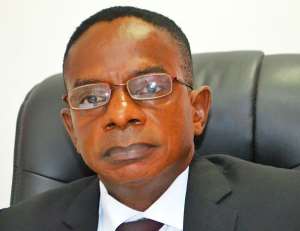
The Ghana Audit Service has rejected accusations from the University of Ghana chapter of the University Teachers Association of Ghana (UTAG-UG), calling their criticisms of a recent audit report “inappropriate and not grounded on facts.”
UTAG-UG had earlier raised concerns over what it described as procedural and ethical lapses in the Auditor-General’s recent special audit of the University of Ghana. The association also disputed a claim that the university overstated its employee compensation by GH¢59.2 million between 2022 and 2024.
In response, the Audit Service issued a statement clarifying that the audit in question — “Recoveries Made from Disallowed Expenditure in the Auditor-General’s Reports from 2020–2023 and Payroll Savings as at 31st December 2024” — was not meant to indict the university, but to report on recoveries and savings identified through standard audit procedures.
“The public should disregard such calls by UTAG-UG,” the statement read, firmly asserting that the audit process followed international best practices, including the International Standards for Supreme Audit Institutions (ISSAIs), as well as Ghana’s own legal frameworks such as the 1992 Constitution, the Public Financial Management Act (2016), and the Audit Service Act (2000).
The Service emphasized that the role of audits is to ensure financial accountability, not to cast aspersions on institutions. It reiterated that audits are intended as corrective tools to promote compliance and transparency, not to assign guilt.
Contrary to UTAG-UG’s allegations of a lack of engagement, the Audit Service noted that there had been continuous dialogue with University of Ghana officials during the audit process. Issues related to payroll and compensation were discussed and addressed prior to the publication of the final report.
“Throughout the process, the audit team engaged the entity concerned, raising any deviations with them for their response before the final certificate was signed,” the Service explained, defending the thoroughness and fairness of its procedures.
It further clarified that disallowed expenditures related to payroll often stem from technical issues such as the absence of financial clearance or the payment of unapproved allowances. These figures are logged as savings to the state and do not necessarily point to wrongdoing by the institutions involved.
The Audit Service concluded by reaffirming its commitment to objective, transparent audits and urged the public to place trust in the integrity of its processes.
Read the full statement below:


